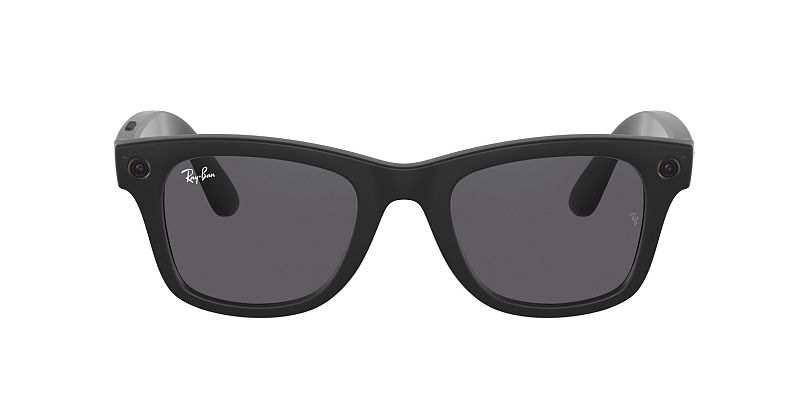You can listen to music, take photos and videos and make calls with them but activists have already flagged concerns over privacy.
Seven years after the ill-fated Google Glass, and five years after Snap rolled out Spectacles, another tech giant is trying its hand at internet-connected smart glasses.
Facebook launched its first smart glasses on Thursday in a step toward its aim of offering true augmented-reality spectacles.
The glasses, which were created in partnership with Ray-Ban maker EssilorLuxottica, allow wearers to listen to music, take calls, or capture photos and short videos and share them across Facebook's services using a companion app.
Facebook said the glasses line, called "Ray-Ban Stories," would start at $299 (€253). They will be available in the US, UK, Canada, Italy, Ireland, and Australia.
However, concerns over privacy have been already been raised over the product, which has built-in speakers and a microphone for making calls.
Amnesty International’s tech wing, Amnesty Tech, said on Twitter that, "Facebook is a surveillance advertising company whose business relies on exploiting our data and invading our privacy on a vast scale.
"Now it has teamed up with Ray-Ban to sell camera glasses. @ray_ban have you thought this through?"
There are also concerns over people taking unsolicited photos of others in public without their knowledge or consent.
Anticipating privacy concerns, Facebook said that by default the glasses "collect data that’s needed to make your glasses work and function, like your battery status to alert you when your battery is low, your email address and password for your Facebook login to verify it’s really you when you log into the Facebook View app."
Facebook also said an LED light on the glasses would show when the camera is on, to make other people aware when a wearer is taking a photo or video.
It published a guide outlining how to use the glasses responsibly, for example turning them off in private spaces like public bathrooms and not using them for illegal actions like harassment or capturing sensitive information, such as PIN codes.
Photos taken by users can't be posted directly to Facebook or any other social media platform. That's where the separate View app comes in.
Convincing social media users that they need to wear an "all-day" connected device on their face may prove an uphill battle even for Facebook.
Facebook's pivot to augmented reality
The social media giant, which reported revenue of about $86 billion (€72.7 billion) in 2020, makes most of its money from advertising but has invested heavily in virtual and augmented reality, developing hardware such as its Oculus VR headsets and working on wristband technologies to support augmented reality glasses.
Facebook's chief scientist said last year the company was five to 10 years away from being able to bring to market "true" AR glasses, which would superimpose virtual objects onto the wearer's view of the real world.
Major tech firms including Amazon.com Inc, Alphabet Inc's Google, Microsoft Corp, Apple Inc and Snap Inc have raced to develop various smart glasses products, but early offerings like Google Glass proved difficult to sell to consumers put off by high price points and design issues.
Snap, which unveiled its smart Spectacles in 2016, this year launched AR glasses but they are not for sale and are offered only to AR creators. Snap's CEO, Evan Spiegel, said in 2019 that he expected it would be a decade before consumers widely adopted AR smart glasses.
Facebook's CEO, Mark Zuckerberg, recently announced the company was setting up a team to work on building the metaverse, a shared virtual environment which it is betting will be the successor to the mobile internet.
"We’ve believed for a long time that glasses are going to be an important part of building the next computing platform," said Zuckerberg in a video posted on his Facebook page on Thursday.
Facebook, which has been criticized over its handling of user data, said it would not access the media used by its smart-glasses customers without their consent.
The company also said it would not use the content of the photos or videos captured using the glasses and stored in the Facebook View app for personalizing ads, and said the glasses would be an "ads-free experience".




